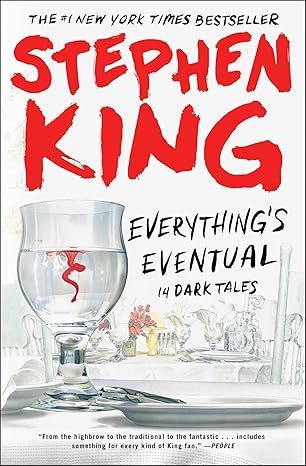Everything's Eventual: 14 Dark Tales
4.5
-
4,613 ratings
Includes the story “The Man in the Black Suit”—set in the fictional town of Castle Rock, Maine
From #1 New York Times bestselling author Stephen King, the iconic, spine-tingling story collection that includes winners of an O. Henry Prize and other awards, and “Riding the Bullet,” which attracted over half a million online readers and became the most famous short story of the decade, as well as stories first published in The New Yorker, “1408,” made into a movie starring John Cusack.
“Riding the Bullet” is the story of Alan Parker, who’s hitchhiking to see his dying mother but takes the wrong ride, farther than he ever intended. In “Lunch at the Gotham Café,” a sparring couple’s contentious lunch turns very, very bloody when the maître d’ gets out of sorts. “1408,” the audio story in print for the first time, is about a successful writer whose specialty is “Ten Nights in Ten Haunted Graveyards,” or “Ten Nights in Ten Haunted Houses,” and though Room 1408 at the Dolphin Hotel doesn’t kill him, he won’t be writing about ghosts anymore. And in “That Feeling, You Can Only Say What It Is in French,” terror is déjà vu at 16,000 feet.
Whether writing about encounters with the dead, the near dead, or about the mundane dreads of life, from quitting smoking to yard sales, Stephen King is at the top of his form in the fourteen “brilliantly creepy” (USA TODAY) tales assembled in Everything’s Eventual. Intense, eerie, and instantly compelling, they announce the stunningly fertile imagination of perhaps the greatest storyteller of our time.
Stories include:
- Autopsy Room Four
- The Man in the Black Suit
- All That You Love Will Be Carried Away
- The Death of Jack Hamilton
- In the Deathroom
- The Little Sisters of Eluria
- Everything's Eventual
- L.T.'s Theory of Pets
- The Road Virus Heads North
- Lunch at the Gotham Café
- That Feeling, You Can Only Say What It Is in French
- 1408
- Riding the Bullet
- Luckey Quarter
Read more
Kindle
$11.99
Available instantly
Audiobook
$0.00
with membership trial
Hardcover
$2.11
Paperback
$15.80
Ships from
Amazon.com
Payment
Secure transaction
ISBN-10
1501197967
ISBN-13
978-1501197963
Print length
464 pages
Language
English
Publisher
Scribner
Publication date
April 16, 2018
Dimensions
5.5 x 1.1 x 8.38 inches
Item weight
15.2 ounces
Popular Highlights in this book
On some level I believed him completely, as we always believe, on some level, the worst thing our hearts can imagine.
Highlighted by 272 Kindle readers
If you need to be there, show up five minutes early. If they need you to be there, show up five minutes late.
Highlighted by 265 Kindle readers
Sometimes stories cry out to be told in such loud voices that you write them just to shut them up.
Highlighted by 233 Kindle readers
Product details
ASIN :
B000FC0O40
File size :
2512 KB
Text-to-speech :
Enabled
Screen reader :
Supported
Enhanced typesetting :
Enabled
X-Ray :
Enabled
Word wise :
Enabled
Editorial Reviews
"Compelling.... Brilliantly creepy." -- USA Today
"Unpredictable.... Full of surprises." -- The New York Times
"Well-crafted, nuanced stories." -- The Washington Post
Sample
1
Autopsy Room Four Autopsy Room Four
It’s so dark that for awhile—just how long I don’t know—I think I’m still unconscious. Then, slowly, it comes to me that unconscious people don’t have a sensation of movement through the dark, accompanied by a faint, rhythmic sound that can only be a squeaky wheel. And I can feel contact, from the top of my head to the balls of my heels. I can smell something that might be rubber or vinyl. This is not unconsciousness, and there is something too… too what? Too rational about these sensations for it to be a dream.
Then what is it?
Who am I?
And what’s happening to me?
The squeaky wheel quits its stupid rhythm and I stop moving. There is a crackle around me from the rubber-smelling stuff.
A voice: “Which one did they say?”
A pause.
Second voice: “Four, I think. Yeah, four.”
We start to move again, but more slowly. I can hear the faint scuff of feet now, probably in soft-soled shoes, maybe sneakers. The owners of the voices are the owners of the shoes. They stop me again. There’s a thump followed by a faint whoosh. It is, I think, the sound of a door with a pneumatic hinge being opened.
What’s going on here? I yell, but the yell is only in my head. My lips don’t move. I can feel them—and my tongue, lying on the floor of my mouth like a stunned mole—but I can’t move them.
The thing I’m on starts rolling again. A moving bed? Yes. A gurney, in other words. I’ve had some experience with them, a long time ago, in Lyndon Johnson’s shitty little Asian adventure. It comes to me that I’m in a hospital, that something bad has happened to me, something like the explosion that almost neutered me twenty-three years before, and that I’m going to be operated on. There are a lot of answers in that idea, sensible ones, for the most part, but I don’t hurt anywhere. Except for the minor matter of being scared out of my wits, I feel fine. And if these are orderlies wheeling me into an operating room, why can’t I see? Why can’t I talk?
A third voice: “Over here, boys.”
My rolling bed is pushed in a new direction, and the question drumming in my head is What kind of a mess have I gotten myself into?
Doesn’t that depend on who you are? I ask myself, but that’s one thing, at least, I find I do know. I’m Howard Cottrell. I’m a stock broker known to some of my colleagues as Howard the Conqueror.
Second voice (from just above my head): “You’re looking very pretty today, doc.”
Fourth voice (female, and cool): “It’s always nice to be validated by you, Rusty. Could you hurry up a little? The babysitter expects me back by seven. She’s committed to dinner with her parents.”
Back by seven, back by seven. It’s still the afternoon, maybe, or early evening, but black in here, black as your hat, black as a wood-chuck’s asshole, black as midnight in Persia, and what’s going on? Where have I been? What have I been doing? Why haven’t I been manning the phones?
Because it’s Saturday, a voice from far down murmurs. You were… were…
A sound: WHOCK! A sound I love. A sound I more or less live for. The sound of… what? The head of a golf-club, of course. Hitting a ball off the tee. I stand, watching it fly off into the blue…
I’m grabbed, shoulders and calves, and lifted. It startles me terribly, and I try to scream. No sound comes out… or perhaps one does, a tiny squeak, much tinier than the one produced by the wheel below me. Probably not even that. Probably it’s just my imagination.
I’m swung through the air in an envelope of blackness—Hey, don’t drop me, I’ve got a bad back! I try to say, and again there’s no movement of the lips or teeth; my tongue goes on lying on the floor of my mouth, the mole maybe not just stunned but dead, and now I have a terrible thought, one which spikes fright a degree closer to panic: what if they put me down the wrong way and my tongue slides backward and blocks my windpipe? I won’t be able to breathe! That’s what people mean when they say someone “swallowed his tongue,” isn’t it?
Second voice (Rusty): “You’ll like this one, doc, he looks like Michael Bolton.”
Female doc: “Who’s that?”
Third voice—sounds like a young man, not much more than a teenager: “He’s this white lounge-singer who wants to be black. I don’t think this is him.”
There’s laughter at that, the female voice joining in (a little doubtfully), and as I am set down on what feels like a padded table, Rusty starts some new crack—he’s got a whole standup routine, it seems. I lose this bit of hilarity in a burst of sudden horror. I won’t be able to breathe if my tongue blocks my windpipe, that’s the thought which has just gone through my mind, but what if I’m not breathing now?
What if I’m dead? What if this is what death is like?
It fits. It fits everything with a horrid prophylactic snugness. The dark. The rubbery smell. Nowadays I am Howard the Conqueror, stock broker extraordinaire, terror of Derry Municipal Country Club, frequent habitué of what is known at golf courses all over the world as The Nineteenth Hole, but in ’71 I was part of a Medical Assistance Team in the Mekong Delta, a scared kid who sometimes woke up wet-eyed from dreams of the family dog, and all at once I know this feel, this smell.
Dear God, I’m in a bodybag.
First voice: “Want to sign this, doc? Remember to bear down hard—it’s three copies.”
Sound of a pen, scraping away on paper. I imagine the owner of the first voice holding out a clipboard to the woman doctor.
Oh dear Jesus let me not be dead! I try to scream, and nothing comes out.
I’m breathing though… aren’t I? I mean, I can’t feel myself doing it, but my lungs seem okay, they’re not throbbing or yelling for air the way they do when you’ve swum too far underwater, so I must be okay, right?
Except if you’re dead, the deep voice murmurs, they wouldn’t be crying out for air, would they? No��—because dead lungs don’t need to breathe. Dead lungs can just kind of… take it easy.
Rusty: “What are you doing next Saturday night, doc?”
But if I’m dead, how can I feel? How can I smell the bag I’m in? How can I hear these voices, the doc now saying that next Saturday night she’s going to be shampooing her dog which is named Rusty, what a coincidence, and all of them laughing? If I’m dead, why aren’t I either gone or in the white light they’re always talking about on Oprah?
There’s a harsh ripping sound and all at once I am in white light; it is blinding, like the sun breaking through a scrim of clouds on a winter day. I try to squint my eyes shut against it, but nothing happens. My eyelids are like blinds on broken rollers.
A face bends over me, blocking off part of the glare, which comes not from some dazzling astral plane but from a bank of overhead fluorescents. The face belongs to a young, conventionally handsome man of about twenty-five; he looks like one of those beach beefcakes on Baywatch or Melrose Place. Marginally smarter, though. He’s got a lot of dark black hair under a carelessly worn surgical-greens cap. He’s wearing the tunic, too. His eyes are cobalt blue, the sort of eyes girls reputedly die for. There are dusty arcs of freckles high up on his cheekbones.
“Hey, gosh,” he says. It’s the third voice. “This guy does look like Michael Bolton! A little long in the old tootharoo; maybe…” He leans closer. One of the flat tie-ribbons at the neck of his greens tunic tickles against my forehead. “… but yeah. I see it. Hey, Michael, sing something.”
Help me! is what I’m trying to sing, but I can only look up into his dark blue eyes with my frozen dead man’s stare; I can only wonder if I am a dead man, if this is how it happens, if this is what everyone goes through after the pump quits. If I’m still alive, how come he hasn’t seen my pupils contract when the light hit them? But I know the answer to that… or I think I do. They didn’t contract. That’s why the glare from the fluorescents is so painful.
The tie, tickling across my forehead like a feather.
Help me! I scream up at the Baywatch beefcake, who is probably an intern or maybe just a med-school brat. Help me, please!
My lips don’t even quiver.
The face moves back, the tie stops tickling, and all that white light streams through my helpless-to-look-away eyes and into my brain. It’s a hellish feeling, a kind of rape. I’ll go blind if I have to stare into it for long, I think, and blindness will be a relief.
WHOCK! The sound of the driver hitting the ball, but a little flat this time, and the feeling in the hands is bad. The ball’s up… but veering… veering off… veering toward…
Shit.
I’m in the rough.
Now another face bends into my field of vision. A white tunic instead of a green one below it, a great untidy mop of orange hair above it. Distress-sale IQ is my first impression. It can only be Rusty. He’s wearing a big dumb grin that I think of as a high-school grin, the grin of a kid who should have a tattoo reading BORN TO SNAP BRA-STRAPS on one wasted bicep.
“Michael!” Rusty exclaims. “Jeez, ya lookin gooood! This’z an honor! Sing for us, big boy! Sing your dead ass off!”
From somewhere behind me comes the doc’s voice, cool, no longer even pretending to be amused by these antics. “Quit it, Rusty.” Then, in a slightly new direction: “What’s the story, Mike?”
Mike’s voice is the first voice—Rusty’s partner. He sounds slightly embarrassed to be working with a guy who wants to be Andrew Dice Clay when he grows up. “Found him on the fourteenth hole at Derry Muni. Off the course, actually, in the rough. If he hadn’t just played through the foursome behind him, and if they hadn’t seen one of his legs stickin out of the puckerbrush, he’d be an ant-farm by now.”
I hear that sound in my head again—WHOCK!—only this time it is followed by another, far less pleasant sound: the rustle of underbrush as I sweep it with the head of my driver. It would have to be fourteen, where there is reputedly poison ivy. Poison ivy and…
Rusty is still peering down at me, stupid and avid. It’s not death that interests him; it’s my resemblance to Michael Bolton. Oh yes, I know about it, have not been above using it with certain female clients. Otherwise, it gets old in a hurry. And in these circumstances… God.
“Attending physician?” the lady doc asks. “Was it Kazalian?”
“No,” Mike says, and for just a moment he looks down at me. Older than Rusty by at least ten years. Black hair with flecks of gray in it. Spectacles. How come none of these people can see that I am not dead? “There was a doc in the foursome that found him, actually. That’s his signature on page one… see?”
Riffle of paper, then: “Christ, Jennings. I know him. He gave Noah his physical after the ark grounded on Mount Ararat.”
Rusty doesn’t look as if he gets the joke, but he brays laughter into my face anyway. I can smell onions on his breath, a little leftover lunchstink, and if I can smell onions, I must be breathing. I must be, right? If only—
Before I can finish this thought, Rusty leans even closer and I feel a blast of hope. He’s seen something! He’s seen something and means to give me mouth-to-mouth. God bless you, Rusty! God bless you and your onion breath!
But the stupid grin doesn’t change, and instead of putting his mouth on mine, his hand slips around my jaw. Now he’s grasping one side with his thumb and the other side with his fingers.
“He’s alive!” Rusty cries. “He’s alive, and he’s gonna sing for the Room Four Michael Bolton Fan Club!”
His fingers pinch tighter—it hurts in a distant coming-out-of the Novocain way—and begin to move my jaw up and down, clicking my teeth together. “If she’s ba-aaad, he can’t see it,” Rusty sings in a hideous, atonal voice that would probably make Percy Sledge’s head explode. “She can do no rrr-ongggg…” My teeth open and close at the rough urging of his hand; my tongue rises and falls like a dead dog riding the surface of an uneasy waterbed.
“Stop it!” the lady doc snaps at him. She sounds genuinely shocked. Rusty, perhaps sensing this, does not stop but goes gleefully on. His fingers are pinching into my cheeks now. My frozen eyes stare blindly upward.
“Turn his back on his best friend if she put him d—”
Then she’s there, a woman in a green-gown with her cap tied around her throat and hanging down her back like the Cisco Kid’s sombrero, short brown hair swept back from her brow, good-looking but severe—more handsome than pretty. She grabs Rusty with one short-nailed hand and pulls him back from me.
“Hey!” Rusty says, indignant. “Get your hands off me!”
“Then you keep your hands off him,” she says, and there is no mistaking the anger in her voice. “I’m tired of your Sophomore Class wit, Rusty, and the next time you start in, I’m going to report you.”
“Hey, let’s all calm down,” says the Baywatch hunk—doc’s assistant. He sounds alarmed, as if he expects Rusty and his boss to start duking it out right here. “Let’s just put a lid on it.”
“Why’s she bein such a bitch to me?” Rusty says. He’s still trying to sound indignant, but he’s actually whining now. Then, in a slightly different direction: “Why you being such a bitch? You on your period, is that it?”
Doc, sounding disgusted: “Get him out of here.”
Mike: “Come on, Rusty. Let’s go sign the log.”
Rusty: “Yeah. And get some fresh air.”
Me, listening to all this like it was on the radio.
Their feet, squeaking toward the door. Rusty now all huffy and offended, asking her why she doesn’t just wear a mood-ring or something so people will know. Soft shoes squeaking on tile, and suddenly that sound is replaced by the sound of my driver, beating the bush for my goddam ball, where is it, it didn’t go too far in, I’m sure of it, so where is it, Jesus, I hate fourteen, supposedly there’s poison ivy, and with all this underbrush, there could easily be—
And then something bit me, didn’t it? Yes, I’m almost sure it did. On the left calf, just above the top of my white athletic sock. A redhot darning needle of pain, perfectly concentrated at first, then spreading…
… then darkness. Until the gurney, zipped up snug inside a bodybag and listening to Mike (“Which one did they say?”) and Rusty (“Four, I think. Yeah, four”).
I want to think it was some kind of snake, but maybe that’s only because I was thinking about them while I hunted for my ball. It could have been an insect, I only recall the single line of pain, and after all, what does it matter? What matters here is that I’m alive and they don’t know it. It’s incredible, but they don’t know it. Of course I had bad luck—I know Dr. Jennings, remember speaking to him as I played through his foursome on the eleventh hole. A nice enough guy, but vague, an antique. The antique had pronounced me dead. Then Rusty, with his dopey green eyes and his detention-hall grin, had pronounced me dead. The lady doc, Ms. Cisco Kid, hadn’t even looked at me yet, not really. When she did, maybe—
“I hate that jerk,” she says when the door is closed. Now it’s just the three of us, only of course Ms. Cisco Kid thinks it’s just the two of them. “Why do I always get the jerks, Peter?”
“I don’t know,” Mr. Melrose Place says, “but Rusty’s a special case, even in the annals of famous jerks. Walking brain death.”
She laughs, and something clanks. The clank is followed by a sound that scares me badly: steel instruments clicking together. They are off to the left of me, and although I can’t see them, I know what they’re getting ready to do: the autopsy. They are getting ready to cut into me. They intend to remove Howard Cottrell’s heart and see if it blew a piston or threw a rod.
My leg! I scream inside my head. Look at my left leg! That’s the trouble, not my heart!
Perhaps my eyes have adjusted a little, after all. Now I can see, at the very top of my vision, a stainless steel armature. It looks like a giant piece of dental equipment, except that thing at the end isn’t a drill. It’s a saw. From someplace deep inside, where the brain stores the sort of trivia you only need if you happen to be playing Jeopardy! on TV, I even come up with the name. It’s a Gigli saw. They use it to cut off the top of your skull. This is after they’ve pulled your face off like a kid’s Halloween mask, of course, hair and all.
Then they take out your brain.
Clink. Clink. Clunk. A pause. Then a CLANK! so loud I’d jump if I were capable of jumping.
“Do you want to do the pericardial cut?” she asks.
Pete, cautious: “Do you want me to?”
Dr. Cisco, sounding pleasant, sounding like someone who is conferring a favor and a responsibility: “Yes, I think so.”
“All right,” he says. “You’ll assist?”
“Your trusty co-pilot,” she says, and laughs. She punctuates her laughter with a snick-snick sound. It’s the sound of scissors cutting the air.
Now panic beats and flutters inside my skull like a flock of starlings locked in an attic. The Nam was a long time ago, but I saw half a dozen field autopsies there—what the doctors used to call “tentshow postmortems”—and I know what Cisco and Pancho mean to do. The scissors have long, sharp blades, very sharp blades, and fat finger-holes. Still, you have to be strong to use them. The lower blade slides into the gut like butter. Then, snip, up through the bundle of nerves at the solar plexus and into the beef-jerky weave of muscle and tendon above it. Then into the sternum. When the blades come together this time, they do so with a heavy crunch as the bone parts and the rib cage pops apart like a couple of barrels which have been lashed together with twine. Then on up with those scissors that look like nothing so much as the poultry shears supermarket butchers use—snip-CRUNCH, snip-CRUNCH, snip-CRUNCH, splitting bone and shearing muscle, freeing the lungs, heading for the trachea, turning Howard the Conqueror into a Thanksgiving dinner no one will eat.
A thin, nagging whine—this does sound like a dentist’s drill.
Pete: “Can I—”
Dr. Cisco, actually sounding a bit maternal: “No. These.” Snicksnick. Demonstrating for him.
They can’t do this, I think. They can’t cut me up… I can FEEL!
“Why?” he asks.
“Because that’s the way I want it,” she says, sounding a lot less maternal. “When you’re on your own, Petie-boy, you can do what you want. But in Katie Arlen’s autopsy room, you start off with the pericardial shears.”
Autopsy room. There. It’s out. I want to be all over goose-bumps, but of course, nothing happens; my flesh remains smooth.
“Remember,” Dr. Arlen says (but now she’s actually lecturing), “any fool can learn how to use a milking machine… but the hands-on procedure is always best.” There is something vaguely suggestive in her tone. “Okay?”
“Okay,” he says.
They’re going to do it. I have to make some kind of noise or movement, or they’re really doing to do it. If blood flows or jets up from the first punch of the scissors they’ll know something’s wrong, but by then it will be too late, very likely; that first snip-CRUNCH will have happened, and my ribs will be lying against my upper arms, my heart pulsing frantically away under the fluorescents in its blood-glossy sac—
I concentrate everything on my chest. I push, or try to… and something happens.
A sound!
I make a sound!
It’s mostly inside my closed mouth, but I can also hear and feel it in my nose—a low hum.
Concentrating, summoning every bit of effort, I do it again, and this time the sound is a little stronger, leaking out of my nostrils like cigarette smoke: Nnnnnnn—It makes me think of an old Alfred Hitchcock TV program I saw a long, long time ago, where Joseph Cotten was paralyzed in a car crash and was finally able to let them know he was still alive by crying a single tear.
And if nothing else, that minuscule mosquito-whine of a sound has proved to myself that I’m alive, that I’m not just a spirit lingering inside the clay effigy of my own dead body.
Focusing all my concentration, I can feel breath slipping through my nose and down my throat, replacing the breath I have now expended, and then I send it out again, working harder than I ever worked summers for the Lane Construction Company when I was a teenager, working harder than I have ever worked in my life, because now I’m working for my life and they must hear me, dear Jesus, they must.
Nnnnnnnn—
“You want some music?” the woman doctor asks. “I’ve got Marty Stuart, Tony Bennett—”
He makes a despairing sound. I barely hear it, and take no immediate meaning from what she’s saying… which is probably a mercy.
“All right,” she says, laughing. “I’ve also got the Rolling Stones.”
“You?”
“Me. I’m not quite as square as I look, Peter.”
“I didn’t mean…” He sounds flustered.
Listen to me! I scream inside my head as my frozen eyes stare up into the icy-white light. Stop chattering like magpies and listen to me!
I can feel more air trickling down my throat and the idea occurs that whatever has happened to me may be starting to wear off… but it’s only a faint blip on the screen of my thoughts. Maybe it is wearing off, but very soon now recovery will cease to be an option for me. All my energy is bent toward making them hear me, and this time they will hear me, I know it.
“Stones, then,” she says. “Unless you want me to run out and get a Michael Bolton CD in honor of your first pericardial.”
“Please, no!” he cries, and they both laugh.
The sound starts to come out, and it is louder this time. Not as loud as I’d hoped, but loud enough. Surely loud enough. They’ll hear, they must.
Then, just as I begin to force the sound out of my nose like some rapidly solidifying liquid, the room is filled with a blare of fuzztone guitar and Mick Jagger’s voice bashing off the walls: “Awww, no, it’s only rock and roll, but I LIYYYYKE IT…”
“Turn it down!” Dr. Cisco yells, comically overshouting, and amid these noises my own nasal sound, a desperate little humming through my nostrils, is no more audible than a whisper in a foundry.
Now her face bends over me again and I feel fresh horror as I see that she’s wearing a Plexi eyeshield and a gauze mask over her mouth. She glances back over her shoulder.
“I’ll strip him for you,” she tells Pete, and bends toward me with a scalpel glittering in one gloved hand, bends toward me through the guitar-thunder of the Rolling Stones.
I hum desperately, but it’s no good. I can’t even hear myself.
The scalpel hovers, then cuts.
I shriek inside my own head, but there is no pain, only my polo shirt falling in two pieces at my sides. Sliding apart as my rib cage will after Pete unknowingly makes his first pericardial cut on a living patient.
I am lifted. My head lolls back and for a moment I see Pete upside down, donning his own Plexi eyeshield as he stands by a steel counter, inventorying a horrifying array of tools. Chief among them are the oversized scissors. I get just a glimpse of them, of blades glittering like merciless satin. Then I am laid flat again and my shirt is gone. I’m now naked to the waist. It’s cold in the room.
Look at my chest! I scream at her. You must see it rise and fall, no matter how shallow my respiration is! You’re a goddam expert, for Christ’s sake!
Instead, she looks across the room, raising her voice to be heard above the music. (I like it, like it, yes I do, the Stones sing, and I think I will hear that nasal idiot chorus in the halls of hell through all eternity.) “What’s your pick? Boxers or Jockeys?”
With a mixture of horror and rage, I realize what they’re talking about.
“Boxers!” he calls back. “Of course! Just take a look at the guy!”
Asshole! I want to scream. You probably think everyone over forty wears boxer shorts! You probably think when you get to be forty, you’ll—
She unsnaps my Bermudas and pulls down the zipper. Under other circumstances, having a woman as pretty as this (a little severe, yes, but still pretty) do that would make me extremely happy. Today, however—
“You lose, Petie-boy,” she says. “Jockeys. Dollar in the kitty.”
“On payday,” he says, coming over. His face joins hers; they look down at me through their Plexi masks like a couple of space aliens looking down at an abductee. I try to make them see my eyes, to see me looking at them, but these two fools are looking at my under-shorts.
“Ooooh, and red,” Pete says. “A sha-vinguh!”
“I call them more of a wash pink,” she replies. “Hold him up for me, Peter, he weighs a ton. No wonder he had a heart attack. Let this be a lesson to you.”
I’m in shape! I yell at her. Probably in better shape than you, bitch!
My hips are suddenly jerked upward by strong hands. My back cracks; the sound makes my heart leap.
“Sorry, guy,” Pete says, and suddenly I’m colder than ever as my shorts and red underpants are pulled down.
“Upsa-daisy once,” she says, lifting one foot, “and upsa-daisy twice,” lifting the other foot, “off come the mocs, and off come the socks—”
She stops abruptly, and hope seizes me once more.
“Hey, Pete.”
“Yeah?”
“Do guys ordinarily wear Bermuda shorts and moccasins to play golf in?”
Behind her (except that’s only the source, actually it’s all around us) the Rolling Stones have moved on to “Emotional Rescue.” I will be your knight in shining ahh-mah, Mick Jagger sings, and I wonder how funky he’d dance with about three sticks of Hi-Core dynamite jammed up his skinny ass.
“If you ask me, this guy was just asking for trouble,” she goes on. “I thought they had these special shoes, very ugly, very golf-specific, with little knobs on the soles—”
“Yeah, but wearing them’s not the law,” Pete says. He holds his gloved hands out over my upturned face, slides them together, and bends the fingers back. As the knuckles crack, talcum powder sprinkles down like fine snow. “At least not yet. Not like bowling shoes. They catch you bowling without a pair of bowling shoes, they can send you to state prison.”
“Is that so?”
“Yes.”
“Do you want to handle temp and gross examination?”
No! I shriek. No, he’s a kid, what are you DOING?
He looks at her as if this same thought had crossed his own mind. “That’s… um… not strictly legal, is it, Katie? I mean…”
She looks around as he speaks, giving the room a burlesque examination, and I’m starting to get a vibe that could be very bad news for me: severe or not, I think that Cisco—alias Dr. Katie Arlen—has got the hots for Petie with the dark blue eyes. Dear Christ, they have hauled me paralyzed off the golf course and into an episode of General Hospital, this week’s subplot titled “Love Blooms in Autopsy Room Four.”
“Gee,” she says in a hoarse little stage-whisper. “I don’t see anyone here but you and me.”
“The tape—”
“Not rolling yet,” she said. “And once it is, I’m right at your elbow every step of the way… as far as anyone will ever know, anyway. And mostly I will be. I just want to put away those charts and slides. And if you really feel uncomfortable—”
Yes! I scream up at him out of my unmoving face. Feel uncomfortable! VERY uncomfortable! TOO uncomfortable!
But he’s twenty-four at most and what’s he going to say to this pretty, severe woman who’s standing inside his space, invading it in a way that can really only mean one thing? No, Mommy, I’m scared? Besides, he wants to. I can see the wanting through the Plexi eye-shield, bopping around in there like a bunch of overage punk rockers pogoing to the Stones.
“Hey, as long as you’ll cover for me if—”
“Sure,” she says. “Got to get your feet wet sometime, Peter. And if you really need me to, I’ll roll back the tape.”
He looks startled. “You can do that?”
She smiles. “Ve haff many see-grets in Autopsy Room Four, mein Herr.”
“I bet you do,” he says, smiling back, then reaches past my frozen field of vision. When his hand comes back, it’s wrapped around a microphone which hangs down from the ceiling on a black cord. The mike looks like a steel teardrop. Seeing it there makes this horror real in a way it wasn’t before. Surely they won’t really cut me up, will they? Pete is no veteran, but he has had training; surely he’ll see the marks of whatever bit me while I was looking for my ball in the rough, and then they’ll at least suspect. They’ll have to suspect.
Yet I keep seeing the scissors with their heartless satin shine—jumped-up poultry shears—and I keep wondering if I will still be alive when he takes my heart out of my chest cavity and holds it up, dripping, in front of my locked gaze for a moment before turning to plop it into the weighing pan. I could be, it seems to me; I really could be. Don’t they say the brain can remain conscious for up to three minutes after the heart stops?
“Ready, doctor,” Pete says, and now he sounds almost formal. Somewhere, tape is rolling.
The autopsy procedure has begun.
“Let’s flip this pancake,” she says cheerfully, and I am turned over just that efficiently. My right arm goes flying out to one side and then falls back against the side of the table, banging down with the raised metal lip digging into the bicep. It hurts a lot, the pain is just short of excruciating, but I don’t mind. I pray for the lip to bite through my skin, pray to bleed, something bona fide corpses don’t do.
“Whoops-a-daisy,” Dr. Arlen says. She lifts my arm up and plops it back down at my side.
Now it’s my nose I’m most aware of. It’s smashed against the table, and my lungs for the first time send out a distress message—a cottony, deprived feeling. My mouth is closed, my nose partially crushed shut (just how much I can’t tell; I can’t even feel myself breathing, not really). What if I suffocate like this?
Then something happens which takes my mind completely off my nose. A huge object—it feels like a glass baseball bat—is rammed rudely up my rectum. Once more I try to scream and can produce only the faint, wretched humming.
“Temp in,” Peter says. “I’ve put on the timer.”
“Good idea,” she says, moving away. Giving him room. Letting him test-drive this baby. Letting him test-drive me. The music is turned down slightly.
“Subject is a white Caucasian, age forty-four,” Pete says, speaking for the mike now, speaking for posterity. “His name is Howard Randolph Cottrell, residence is 1566 Laurel Crest Lane, here in Derry.”
Dr. Arlen, at some distance: “Mary Mead.”
A pause, then Pete again, sounding just a tiny bit flustered: “Dr. Arlen informs me that the subject actually lives in Mary Mead, which split off from Derry in—”
“Enough with the history lesson, Pete.”
Dear God, what have they stuck up my ass? Some sort of cattle thermometer? If it was a little longer, I think, I could taste the bulb at the end. And they didn’t exactly go crazy with the lubricant… but then, why would they? I’m dead, after all.
Dead.
Read more
About the authors
Stephen King
Stephen King is the author of more than fifty books, all of them worldwide bestsellers. His first crime thriller featuring Bill Hodges, MR MERCEDES, won the Edgar Award for best novel and was shortlisted for the CWA Gold Dagger Award. Both MR MERCEDES and END OF WATCH received the Goodreads Choice Award for the Best Mystery and Thriller of 2014 and 2016 respectively.
King co-wrote the bestselling novel Sleeping Beauties with his son Owen King, and many of King's books have been turned into celebrated films and television series including The Shawshank Redemption, Gerald's Game and It.
King was the recipient of America's prestigious 2014 National Medal of Arts and the 2003 National Book Foundation Medal for distinguished contribution to American Letters. In 2007 he also won the Grand Master Award from the Mystery Writers of America. He lives with his wife Tabitha King in Maine.
Read more
Reviews
Customer reviews
4.5 out of 5
4,613 global ratings
Jman
5
The book was better than the movie
Reviewed in the United States on January 31, 2014
Verified Purchase
First let me say that I loved the movie '1408' but having read the short story I have to say it is the best read ever, at least in my opinion. I'm not wild about reading to begin with, but this was a very good read. I've only voluntarily read two other books before this one and that was only because I had first seen the movie and liked it so much. I saw 1408 a few years ago and have really loved it so much that I finally decided to read the book.
Just to be clear, this book is actually a collection of short stories from Stephen King. I still haven't read the other stories yet. 1408 was such a great story and was very creepy. Had they made the movie into a short film it would have been better, but I still like the movie very much. There's a lot in the movie that was never in the book which is understandable since the movie is nearly 2 hours long. I thought the book version was much scarier and far more interesting. I highly recommend this to anyone whether you like to read or not, or even if you don't particularly like horror stories I still think you will find this quite interesting.
Read more
2 people found this helpful
Leo 69
5
Joy of reading
Reviewed in the United States on September 12, 2024
Verified Purchase
I started out reading to my girls at an early age and they love it and excelled in school. They both received full college scholarships.
Gary Griffiths
5
Why King is "King"
Reviewed in the United States on April 14, 2002
Verified Purchase
I've been a Stephen King fan for many years. His ability to make the most mundance events or setting terrifying, and his keen grasp of human nature and human foibles place him near the top in pure literary genius. That he happens to write horror is only incidental, and in a way unfortunate, for the mass market appeal of his novels and stories has prevented King receiving due credit as one of the great American writers of modern times. Perhaps King's legacy will begin to change with "Everything's Eventual". This is an eclectic and versatile collection of short stories, in which his talents are generously displayed. It has been a while since I've read Stephen King, and I couldn't help but notice a subtle change in style - a melancholly wisdom and maturity I've overlooked in any of King's earlier works. "All that you Love Will be Carried Away" is a beautifully sad, yet darkly humorous story that captures this theme of resigned fatalism. "The Man in the Black Suit", while as terrifying a story as King has ever writen, has a depth and moral undertone that transcends King's familiar "Good vs. Evil" story line. For shear gut-turning terror, it doesn't get much better than "Autopsy Room Four": leave it to King to have the reader not wanting to turn the page, yet unable to overcome the morbid curiosity, while at the same time finding humor in an autopsy about to be performed on a very-much-alive patient. "The Death of Jack Hamilton" tells a tale of the John Derringer gang, and "In the Deathroom" finds an American reporter caught in a brutal in a south American interrogation chamber. "The Road Virus Heads North" is told from the roughly autobiographical viewpoint that King does so well, and who but King could make even a yard sale ominous? There isn't a bad story in the lot, though I found "The Little Sisters of Eluria" playing on themes a bit too familiar. But I suspect diehard "Dark Tower" fans may find it one of the best in the collection. Other tales of divorce and marriages gone bad, a sinister conspiracy, and a haunted hotel room reflect classic King morbidness, yet also build on this deeper, philosophical undercurrent. Each story is either introduced or closed with a brief vignette by King. While typically I find editorial inserts annoying, In "Eventual" I found them interesting and instrumental to the overall success and flow of the book. In summary, a must read for Stephen King fans, and a great way for the unintiated to get introduced to him.
Read more
12 people found this helpful
Reader Extraordinaire
5
Real Stephen King
Reviewed in the United States on July 11, 2024
Verified Purchase
This was a gift to someone. The recipient thoroughly enjoyed this package.
Joecooler2u
5
As good as Nightmares & Dreamscapes!
Reviewed in the United States on November 5, 2006
Verified Purchase
This Short Story collection is King's best work in recent years. Unlike Nightmares and Dreamscapes it only has 14 stories, but most are high quality stories that are fascinating for how easy the stories flow. I have this novel twice in softcover and once in hardcover. Here is a story-by-story breakdown.
1 - Autopsy Room Four - A man is paralyzed after getting bitten by a rare snake on a golf course. Everyone thinks he is dead, which is the reason he is in an autopsy room. This story has the uncomfortable feeling that you would also get from being buried alive. King is a master at getting his readers to feel what his main characters feel. This is a top-notch story and a great way to start out the book. Story Grade - A+
2 - The Man In The Black Suit - Imagine meeting the devil in a very real-world setting. This is basically what this story is in a nutshell. It comes off much better than it sounds. King won an award for best short fiction for this story and it is well deserved. Story Grade - A+
3 - All That You Love Will Be Carried Away - An unsettling story about a traveling salesman on the verge of committing suicide. This is a story that makes you wonder if we all have a preset destiny or if we can change the way our lives go. An interesting story, not the best but certainly not among the worst either. Story Grade - B
4 - The Death Of Jack Hamilton - This story is based on the true story of the death of a member of John Dillinger's first gang. Normally I don't go for western, or outlaw stories, but King drew me in with this one. It was a great story and I was glad to read it. King does a great job of telling the story from the first-person point of view. Story Grade - A
5 - In The Deathroom - An unusual King story that has a happy ending. Still throughout much of the story it doesn't seem like it will go that way. A former reporter for the New York Times is captured by a South American government. The reporter is held in what is known as "The Deathroom" where he is repeatedly interrogated about a Communist insurgancy that he has been supporting. Despite his captor's claim that he will be set free if he reveals all, the ex-reporter knows that is not in the plans. He stays calm despite the tortures he faces and strives to fight back and survive his terrible ordeal. Again King makes you feel like the lead character feels. He makes the situation relatable and horrifying. Story Grade - A+
6 - The Little Sisters Of Eluria - This is a Dark Towers-related story. I do not follow that series so I never read this story. Dark Towers is too fantasy based for my taste so most of the stories related to that series I tend to not read. I'll skip the story grade because I did not read this story so it would be wrong to grade it.
7 - Everything's Eventual - This story is one of King's best ever in my opinion. It's about a boy who has been bullied, until he realizes his powers and fights back against the bullies. Unlike Carrie or Firestarter, this is a boy with superpowers. The lead character is a bit of a nerd, but he is easy to feel sorry for. Recruited by the government he sets about using his powers to writer letters or emails to people causing them to committ suicide. For this work he is given a free house, a car, almost anything he wants by way of the cleaners that come around once a week. He does not contact them in person but leaves messages on the fridge for what he wants, from food to an copied painting by Rembrant, to an autographed picture of Nichole Kidman. He also gets cd's & movies before they are released to the general public. Dinky (the main character) also gets paid, a whopping sum of $70 a week and uses the money for trips to McDonalds, the movies, gas money etc. It's not about the cash though, it's about the benefits. One thing is that Dinky must begin the week broke and end the week broke. You might wonder why he has to shred the money or toss the change down a sewer drain. But there are good reasons for everything. The story ends on a bit of a cliffhanger. I would like to read a sequel to this one day. Story Grade - A+
8 - LT's Theory Of Pets - A fascinating story about the breakup of a marriage and how similar the relationships between dogs and cats are to a married couple. The main character (LT) is pretty lighthearted throughout much of the story, but throws a surprise towards the end. This story takes you on an emotional roller-coaster and is the kind of story to be told around a campfire. Like Everything's Eventual, this story is one of King's best works ever. Stroy Grade - A+
9 - The Road Virus Heads North - This story is basically another inspired by a painting King has. Those paintings that seem to move before your very eyes. Unlike those drawings/paintings, this one haunts the author who bought it at a yardsale. After awhile he tries to get rid of the painting only to have it come back and haunt him and the driver of the car in the painting follows the author's trail. Richard Kinnell (the writer) hears of the brutal death of the woman who sold the painting to him. The story basically says that we are all destined to our own fate. Story Grade - A
10 - Lunch At The Gotham Cafe - This story is about a couple getting a divorce and how much of the ordeal is a waking nightmare. As the couple argue over petty things, the maitre d is going crazy and stabs the wife's lawyer. Most of the crowd escapes unharmed, but the couple is faced with having to fight off a crazed maitre d in the kitchen. This is a story that is twisted, but you can imagine something like this happening. Another great story in this collection! Story Grade - A+
11 - That Feeling, You Can Only Say What It Is In French - Deja Vu. A woman traveling with her husband experiences a repeat of events from flying on an airplane (that crashes and blows up) to traveling in a limo to the airplane. This story shows how repeating events could be very tiring, but still a good story nonetheless. Story Grade - B
12 - 1408 - This is a haunted hotel room story King started in his novel On Writing. It was basically to show fans how to writer a story that's been told a thousand times but do so in a way where it comes off as new & original. You almost can feel that this story takes place in one of the rooms of the Overlook hotel (The Shining). Anything more would spoil the story. Story Grade - A+
13 - Riding The Bullet - Originally it was an online book. A simple tale of a character facing death. He is hitchhiking to visit his mother who just suffered a massive stroke. He falls asleep in a cemetary, unknown to him that the headstone he sleeps near is the next driver who will pick him up. Alan Parker (the main character) is forced to face the death of his mother. If he doesn't choose her to die it will be Alan himself who dies. A great story that reminds us that we are not immune to death and neither are our loved ones. Much much better than that pathetic movie adaptation in 2004. Story Grade - A+
14 - Luckey Quarter - A woman is tipped a lucky quarter from a man in a gambling hotel. She envisions herself gambling the quarter and winning over and over again. The woman is the mother of two children, her teenage daughter and her sickly young son. She is poor and when the fantasy ends she gives the quarter to her son who was visiting her at work and he precedes to win when he gambles it. Just like her fantasy he wins over and over again. The woman is left to say to herself "Lucky me, lucky me"
One thing I didn't get about the story was that King made it sound as if the boy was very young, so what is he doing gambling? A nice positive story, which is rare for King. Not one of the best and not one of the worst. Story Grade - B
I have this book twice in softcover and once in hardcover. I highly recommend it. One of King's best works ever!
Read more
43 people found this helpful
Top Stephen King titles
View all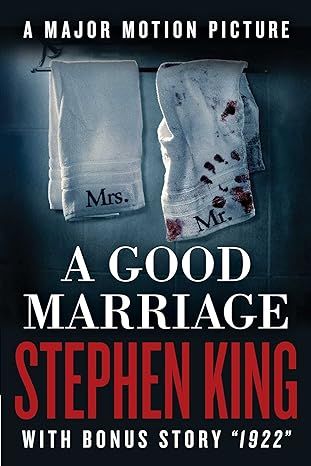
A Good Marriage
4.1
-
5,995
$4.99
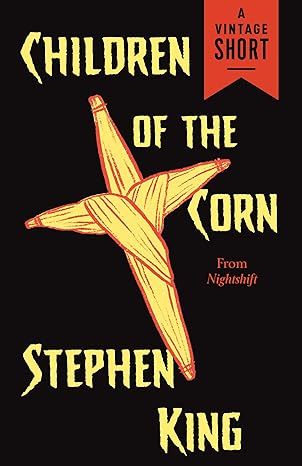
Children of the Corn (Kindle Single) (A Vintage Short)
4.3
-
1,084
$0.99
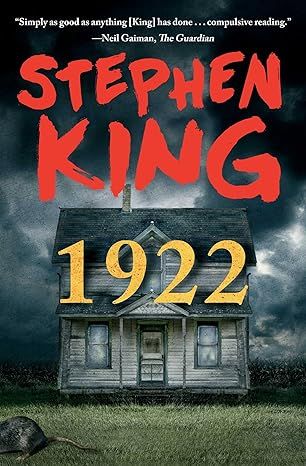
1922
4.6
-
6,082
$7.99
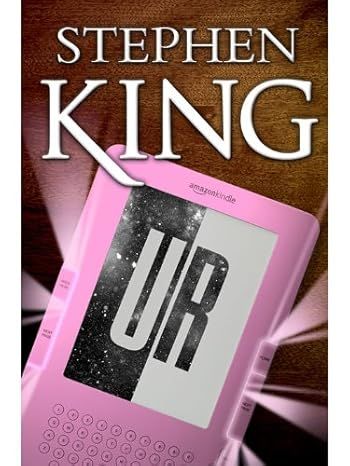
UR
4.3
-
6,140
$3.99
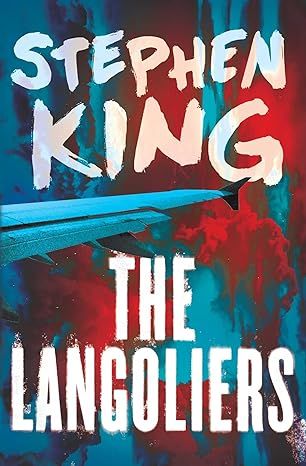
The Langoliers
4.6
-
1,014
$6.49
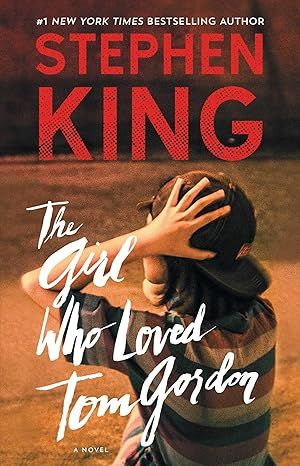
The Girl Who Loved Tom Gordon: A Novel
4.5
-
4,774
$1.17
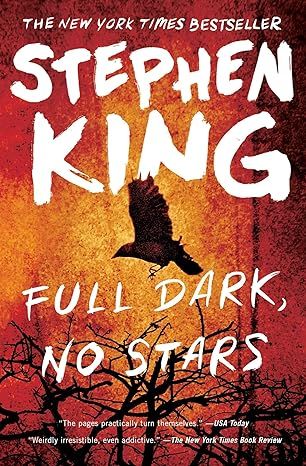
Full Dark, No Stars
4.6
-
6,762
$5.00
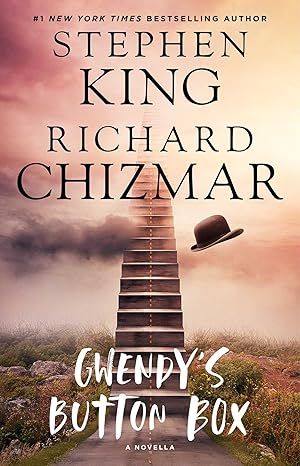
Gwendy's Button Box: A Novella (Gwendy's Button Box Trilogy Book 1)
4.5
-
21,335
$3.88
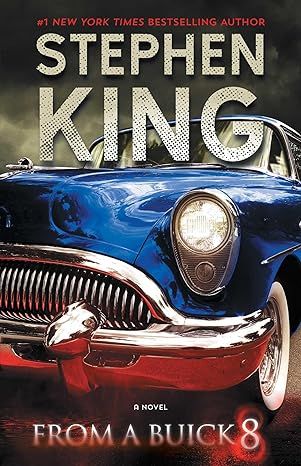
From a Buick 8: A Novel
4.3
-
2,174
$11.99
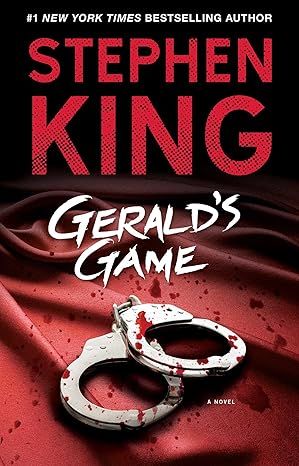
Gerald's Game
4.2
-
3,838
$1.97
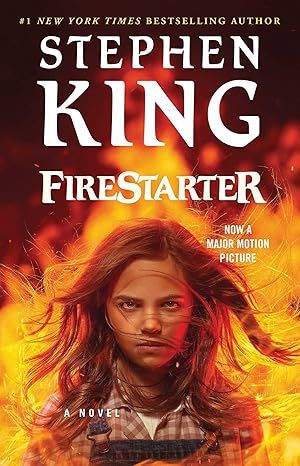
Firestarter
4.6
-
5,489
$9.99
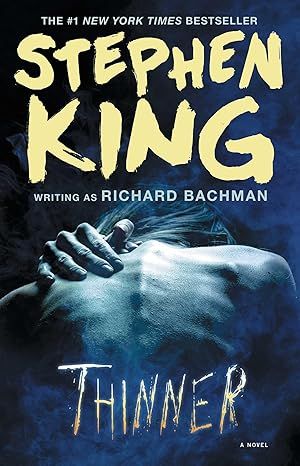
Thinner
4.5
-
3,107
$2.50
Best Sellers
View all
The Tuscan Child
4.2
-
100,022
$8.39

The Thursday Murder Club: A Novel (A Thursday Murder Club Mystery)
4.3
-
155,575
$6.33

Sapiens: A Brief History of Humankind
4.6
-
140,302
$13.49

The Butterfly Garden (The Collector, 1)
4.3
-
88,556
$9.59

Things We Hide from the Light (Knockemout Series, 2)
4.4
-
94,890
$11.66

The Last Thing He Told Me: A Novel
4.3
-
154,085
$2.99

The Perfect Marriage: A Completely Gripping Psychological Suspense
4.3
-
143,196
$9.47

The Coworker
4.1
-
80,003
$13.48

First Lie Wins: A Novel (Random House Large Print)
4.3
-
54,062
$14.99

Mile High (Windy City Series Book 1)
4.4
-
59,745
$16.19

Layla
4.2
-
107,613
$8.99

The Locked Door
4.4
-
94,673
$8.53
